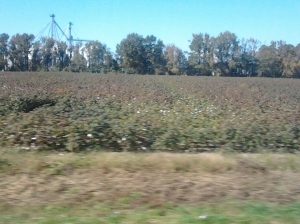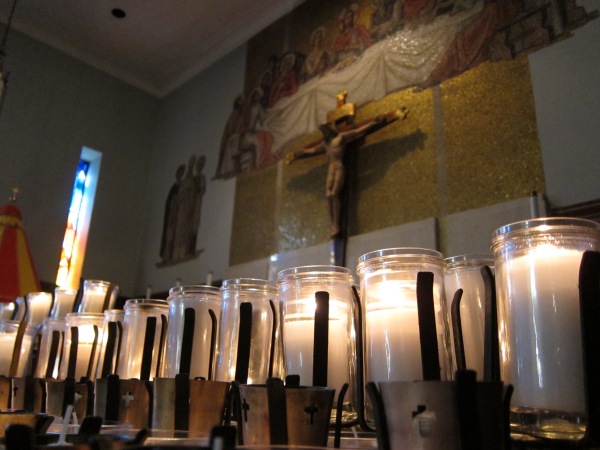I recently went from a denominational Justice and Witness meeting to a denominational Disability Ministry meeting and Conference. As I spoke with people at my second meeting and told them that I had just come from a meeting at the Franklinton Center at Bricks I heard again and again “that is a beautiful place”. The Franklinton Center is supported by the Justice Witness Ministries of the United Church of Christ.

It is a beautiful place but its beauty is haunting. The Franklinton Center at Bricks in located in rural eastern North Carolina. The land upon which it sits was once a slave plantation, but it was not just any slave plantation it was the plantation, we were told, where the “rebellious” slaves newly brought ashore were taken to be “broken in” and inducted or acculturated into slavery. The historical tradition of the place includes the report that there was once a “whipping tree” on the grounds. This was once a place of torture.

What was once a place of grave injustice and inhumanity has also been a place of hope. After the civil the property that the Franklinton Center now sits up came into the ownership of a Northern white woman named Julia Bricks. At that time a school for freed slaves was founded on the land. It was a school that educated emancipated slaves and also allowed them to work on the property to earn the funds to cover their tuition and room and board. In this way, what is now the Franklinton Center became an integral part of the surrounding community and has remained so.

Eventually the school at Bricks was closed. However, the Franklinton Center at Bricks has remained an integral part of the surrounding communities and the people who call this area home. During the Justice and Witness Ministries meeting we were taken on a tour of the tri-county area surrounding the Franklinton Center to get to know the people there and current mission work of this place. Now, I spent some time of my youth in northern Florida and had been through some impoverished areas of the South; I am not exactly a stranger to poverty having lived below that line for part of my childhood. That being said, the communities in the three counties we saw around Franklinton Center are areas of extreme poverty—one of the towns had had the highest unemployment in the nation every year for the past twenty years. Nearly every other house in these neighborhoods were not only empty but boarded up. There was an absence of grocery stores, although there were a few fast food restaurants. There was an absence of jobs, an absence of public transportation. The schools in the three counties had been consolidated so better use public funds but some children had long bus commutes. One of the ex-mayors of one of the towns told us that half the housing in the area did not currently meet community building standards but that the town could not condemn the substandard houses because they had no other place to house people in the community. Another local community leaders explained how the local tax system had been gerrymandered after desegregation to funnel property tax funds into schools where the majority of students were Caucasian, while the schools with the majority of African American and other minority students struggled for state and federal funding. This area is one that has been called a community of “educational genocide”; I still do not know what to make of that. It is also a designated “food desert” meaning that there is little or no access to fresh fruits and vegetables.

Hope remains at Franklinton Center. While we were there, we also met community members who are working to renew the community. There is a woman at the local community redevelopment corporation who showed us a newly built housing area is single and multi-family dwellings with community space for after school tutoring and computer labs; she showed us a commercial development they are trying to build to so local dollars can general local tax money that will stay in the county, since many have to shop in surrounding communities where goods are more available. She spoke to us about the pervasive racism in the area and how this has made it difficult to find commercial entities willing to locate in a predominately African American area. She also took us to the downtown area of one of the local communities to show us how parts of this area had been redeveloped and locally-owned businesses had begun moving in—including a pediatrician and soon a restaurant will open. We were introduced to man fighting the environmental racism inherent in the polluting nature of the region’s hog farming industry, who pointed out that while this industry supplies jobs they are jobs that often maim workers. There was also hope in meeting the principal of the local school who shared how the Franklinton Center is partnering with the local school. Hope is embodied at Franklinton Center in the center’s director Vivan Lucas who approached the local schools to create a family literacy camp using the dormitory and space at Franklinton Center. Hope abides in families of community members who can trace up to four generations who have enjoyed summer camp activities at Franklinton Center, and name children who have learned to swim at Franklinton Center which has the only pool in the tri-county area—did you know that African Americans have a higher risk of drowning because they often lack access to pools to learn to swim? Hope resides in this ground as a retreat and conference center has been developed to support its other ministries even as it teaches about the past. Hope is taking root as the Franklinton Center begins to plant fruit trees and experiment with community sustainable agriculture on its land to empower the local community to address its status as a “food desert”.

There is on the grounds of Franklinton Center a tree called “the tree of life” it is a symbol to commemorate the whipping tree that once shadowed these grounds. As our meeting at Franklinton Center came to a close, we stood on a platform beside this tree of life to worship. In the Communion liturgy there was a pause to read the names of some slaves who had been transferred as property of the plantation from one family to another—how deeply I felt the brokenness of humanity and deeply I yearned for the new covent of hope of that meal, as I stood before that tree commemorating the tree upon which so much blood was shed. This place bears a resemblance to our most sacred story, does it not?
As I stood in silence with others after that meal, I looked out at the vast empty field beyond the tree. The land was grassy field on one side, cotton field on the other, train track in the not too distance, and the surrounding community was hungry. Still it is a beautiful place. It is a terrible, beautiful place. A place that wants to imbibe hope as it blooms out of the roots of its past. It is a land rooted in time past and present that reminds us of how far we have come and yet so far we have to go. It is a place that teaches us that hope is as much as verb as it is noun and calls us to continue the work for all types of justice in a world where “the harvest is plentiful, but the laborers are few”.

While I do not normally use this site to advertise or fundraise, the work of Franklinton Center is too important to not make it known that the center needs financial support, including the kind that come from holding your event there, as well as prayers
Justice is a very real issue at Franklinton Center.
For more information about Franklinton Center, or to learn how to donate click: Franklinton Center/UCC







